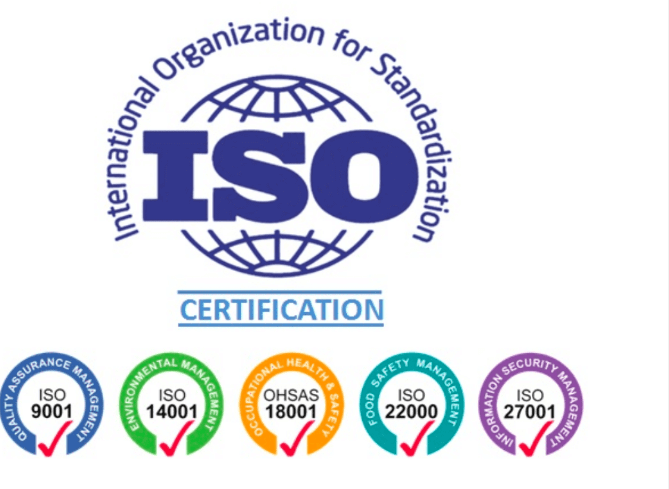Unlocking Success: The Essentials Of ISO Accreditation Requirements

Discover the key to business success with ISO Accreditation Requirements. Learn about the essential requirements and benefits in our comprehensive guide.
In today’s competitive business landscape, achieving success and earning the trust of customers and partners is paramount. Obtaining ISO accreditation is one way to demonstrate your commitment to quality and excellence.
ISO accreditation is a globally recognised certification that signifies your adherence to internationally accepted standards. This article will explore the essentials of ISO accreditation requirements and how they can unlock success for your organisation.
What Is ISO Accreditation?
ISO stands for the International Organization for Standardization, a non-governmental entity that develops and publishes international standards.
ISO accreditation is a formal recognition by a certification body that an organisation complies with specific ISO standards.
These standards cover various aspects of business operations, including quality management, environmental practices, information security, and more.
The Benefits Of ISO Accreditation
Before delving into the requirements, let’s understand why ISO accreditation is essential for businesses.
1. Improved Quality
ISO standards are designed to enhance the quality of products and services. By following these standards, organisations can consistently deliver high-quality results, increasing customer satisfaction and loyalty.
2. Enhanced Credibility
ISO accreditation is a mark of credibility and reliability. It demonstrates your commitment to meeting international standards and can boost your organisation’s reputation in the eyes of customers, partners, and regulatory authorities.
3. Market Access
ISO accreditation can open doors to new markets, both domestically and internationally. Many government contracts and business partnerships require ISO certification as a prerequisite.
4. Cost Reduction
Implementing ISO standards often leads to more efficient processes and reduced operational costs. This can positively impact your bottom line and profitability.
5. Risk Mitigation
ISO standards often include risk management practices, helping organisations identify and mitigate potential threats to their operations.
ISO Accreditation Requirements
Now that we’ve explored the benefits of ISO accreditation let’s dive into the essential requirements for obtaining it.
1. Standard Selection
The first step in achieving ISO accreditation is selecting your organisation’s relevant ISO standard(s). These standards cover a wide range of areas, so it’s crucial to identify the one(s) that align with your business goals and activities.
Some common ISO standards include ISO 9001 (Quality Management), ISO 14001 (Environmental Management), and ISO 27001 (Information Security Management).
2. Documented Processes
ISO accreditation requires organisations to document their processes and procedures. This documentation serves as a roadmap for employees and auditors, ensuring that everyone understands how tasks should be performed and how quality is maintained.
3. Implementation
Once you’ve selected the appropriate standard and documented your processes, it’s time to implement the required practices.
This involves putting the documented procedures into action and ensuring employees follow them consistently.
4. Training And Awareness
Proper training and awareness among your staff are crucial for ISO accreditation. Employees must understand the importance of complying with ISO standards and how their roles contribute to the overall quality and effectiveness of the organisation.
5. Internal Audits
Before seeking external accreditation, organisations must conduct internal audits to assess their compliance with ISO standards.
These audits help identify areas that require improvement and ensure that your organisation is ready for external assessment.
6. External Assessment
The next step is the external assessment, often conducted by a third-party certification body.
During this assessment, auditors will evaluate your organisation’s processes, Documentation, and adherence to the chosen ISO standard. If you meet the requirements, you will receive ISO accreditation.
7. Continuous Improvement
ISO accreditation is not a one-time achievement; it requires an ongoing commitment to quality and continuous improvement.
Organisations must regularly review their processes, assess their performance, and make necessary adjustments to maintain compliance.
Tips For Success In ISO Accreditation
Achieving ISO accreditation can be a challenging but rewarding journey. To guarantee your triumph, consider these valuable pointers:
1. Commitment From Leadership
Obtaining ISO accreditation requires the full support and commitment of top management. Leaders should set the tone for the organisation’s dedication to quality and compliance.
2. Engage Employees
Involve employees at all levels in the accreditation process. Their input and cooperation are essential for successful implementation.
3. Seek Expert Guidance
Consider hiring consultants or experts with experience in ISO accreditation. They can provide valuable insights and guidance throughout the process.
4. Tailor Documentation
While ISO standards provide a framework, it’s essential to tailor your Documentation to your organisation’s specific needs and processes.
5. Monitor and Measure
Implement key performance indicators (KPIs) to measure the effectiveness of your processes and track progress towards accreditation.
6. Address Non-Conformities
If auditors identify non-conformities during internal or external assessments, address them promptly and take corrective actions.
Conclusion
ISO accreditation is valuable for organisations seeking to enhance their quality, credibility, and competitiveness. By following the essential requirements and tips outlined in this article, you can embark on a successful journey towards ISO accreditation.
Remember that ISO accreditation is not a destination but an ongoing commitment to excellence and continuous improvement.
With ISO accreditation, you can unlock new opportunities, gain a competitive edge, and demonstrate your dedication to delivering quality products and services to your customers.
At KTIC, we possess extensive expertise in assisting organisations in achieving and upholding ISO accreditation.
Our team of experts is equipped with the knowledge, guidance, and resources necessary to propel your organisation to new heights.
ISO accreditation requirements encompass a range of legal TM44 Compliance issues and are relevant to the various compliance matters that KTIC frequently supports companies with.





